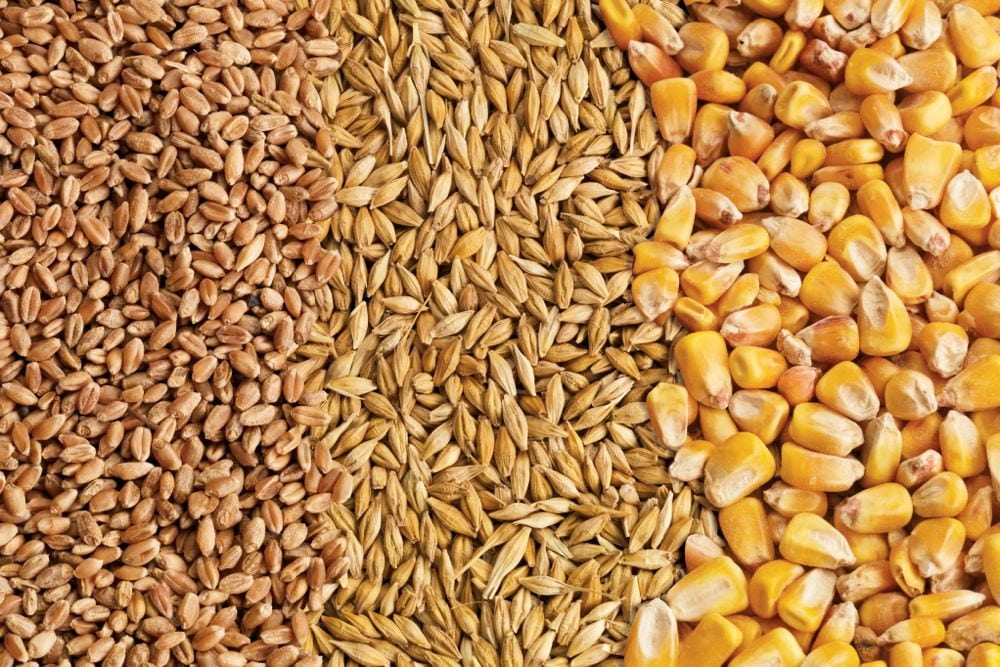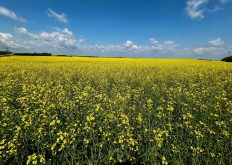(Resource News International) — Canada’s canola crush capacity has been steadily expanding, but the red-flagging of processors who ship canola meal into the U.S. for salmonella contamination will prevent the domestic industry from achieving its 2009-10 marketing goals.
The U.S. Food and Drug Administration’s (FDA) clampdown on Canadian canola meal entering the U.S. with salmonella bacteria contaminants has helped to slow up the processing of canola seed,” said Ron Frost, president of Calgary-based Frost Forecasting Corp., and with Agri-Trend Marketing Inc.
Read Also

Feed Grains Weekly: More consideration being given to U.S. corn
There’s beginning to be a shift within the Canadian Prairie feed market towards importing United States corn, said Darcy Haley, vice-president of Ag Value Brokers in Lethbridge.
Two of Canada’s largest canola processors saw canola meal shipments halted in the spring of 2009 after the FDA, during routine inspections, found salmonella contamination.
When the FDA has a product sample that comes back positive for salmonella, future shipments of that product from that particular manufacturer are subject to detention when they enter the U.S. The detention of that product will continue for each subsequent shipment until the firm has shown to the FDA that it has controlled the problem.
Included in the process is the submission of that firm’s information and the steps which were taken to correct the problem that led to the detention.
Frost said the industry was expecting that Canada’s 2009-10 total domestic canola crush would be in the 4.6 million- to 4.8 million-tonne range, with some anticipating as much as five million to 5.5 million tonnes.
Canada’s current canola crush capacity is sitting at an estimated 5.6 million to 5.8 million tonnes, said Dave Hickling, vice-president of canola utilization, for the Canola Council of Canada.
Canada’s crush capacity, he acknowledged, had been sitting at 4.3 million to 4.4 million tonnes up until recently. The addition of the Louis Dreyfus-Mitsui facility in the Yorkton, Sask. area and the startup of a second Cargill plant at Clavet, Sask. increased the crush capacity to the current level.
Another canola crushing facility in the Yorkton area, owned by Richardson Oilseed Processing and expected to be operational by the spring, would boost Canada’s processing capacity into the 6.6 million- to 6.7 million-tonne area, Hickling said.
“However, the plants are certainly not operating necessarily at full capacity, especially given the salmonella issue,” he said.
The plants that have been put on import alert by the FDA have to essentially shut down for a week or two and thoroughly clean out all areas of the facility, including equipment, in order to be eligible for reinstatement, Hickling said.
“These closures of the facilities negatively impacts capacity utilization rates,” Hickling said. “It is quite possible that with these kind of shut downs, the industry may not be able to meet the goals that have been set out as a result.”
Ending stocks
“With total supplies of canola in Canada increasing during the 2009-10 crop year, it will be necessary to utilize a higher percentage of the expanding domestic capacity in order to chew through enough canola to bring ending stocks to a moderate level by the end of July,” Frost said.
The inability of Canada’s processors to freely move canola meal into the U.S. because of the salmonella issue has already started to show, he said.
Frost pointed out that at the first half mark of the 2009-10 crop year, the weekly average crush pace by domestic crushers was way behind where it needs to be in order to achieve the targets established by Canada’s canola industry.
“In order for a five million-tonne crush level to be realized, the weekly crush pace will need to climb to as high as 100,000 tonnes per week,” Frost said. The crush pace, as reported by the Canadian Oilseed Processors Association, has been below 80,000 tonnes and closer to 73,000 tonnes during the past month.
“There had been, at one point, the industry anticipation that the canola crush pace would have been ahead of last year’s level,” said Mike Jubinville, an analyst with ProFarmer Canada, noting that the canola meal blockage by the FDA had seriously slowed up the processing of canola seed.
“The buying interest among crushers for canola is already beginning to slow and will likely remain limited until some sort of resolution to the situation is obtained,” Jubinville said.
“When we get into the realm of politics, of which this is, it may take some time to reach an appropriate settlement that everyone will be happy with.”
Some of Canada’s largest canola processors, including Bunge, ADM, Cargill and Viterra, have had their canola meal shipments blocked at the U.S. border because of salmonella bacteria.
While Cargill’s facility at Clavet has again been cleared by the FDA to resume canola meal shipments to the U.S., there is still the possibility that further testing by the FDA will again find traces of salmonell, given its strict tolerance restrictions.
“The zero tolerance levels of salmonella bacteria laid out by the FDA will continue to be a thorn in the side of Canada’s domestic crushing industry for an indefinite time,” Jubinville predicted. “Zero tolerance means even microscopic traces of salmonella not showing up in the samples, which is beyond the realm of the trade ability to satisfy.”
Asked to stop
Private industry sources, meanwhile, said Canada’s government, through the Canadian Food Inspection Agency, has asked the U.S. to stop imposing restrictions on Canadian crushers’ exports of canola meal that are found to have salmonella.
Canola meal, they noted, is tested prior to being shipped and so far has all been found to be free of salmonella, so the problem is said to lie within the transportation process.
Another issue is the fact that the product is not being used for human consumption. It’s being shipped as a protein source for livestock feed and is usually cooked again once it arrives at its destination, the sources said. That would kill any salmonella that’s present. As a result, there are questions on how the U.S. government can justify continuing these restrictions.
In the short term, Hickling said, there will likely be no quick fix to the situation with the U.S. government.
“However, there is a lot of effort ongoing to resolve this issue as quick as possible by all interested parties in Canada, and I think the industry is still cautiously optimistic that there will be a solution presented that will satisfy all,” Hickling said.
He also pointed out that Canada’s canola industry in the past has been extremely resourceful and will find ways to process as much canola as possible and make a dollar or two by selling all the products to as many locations as possible.














